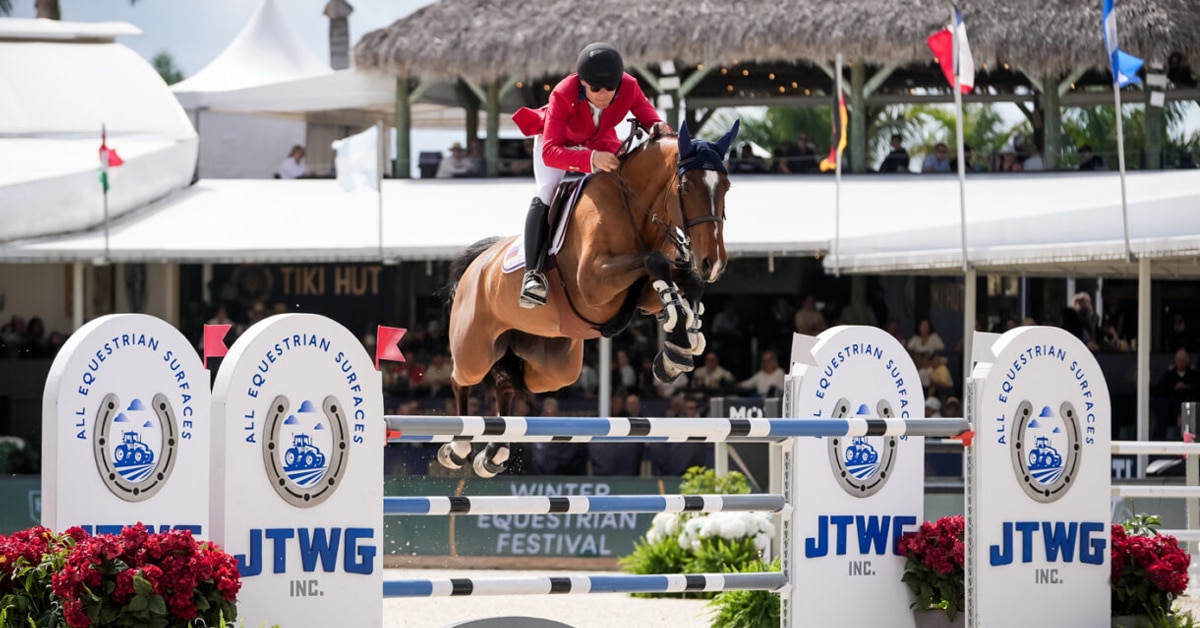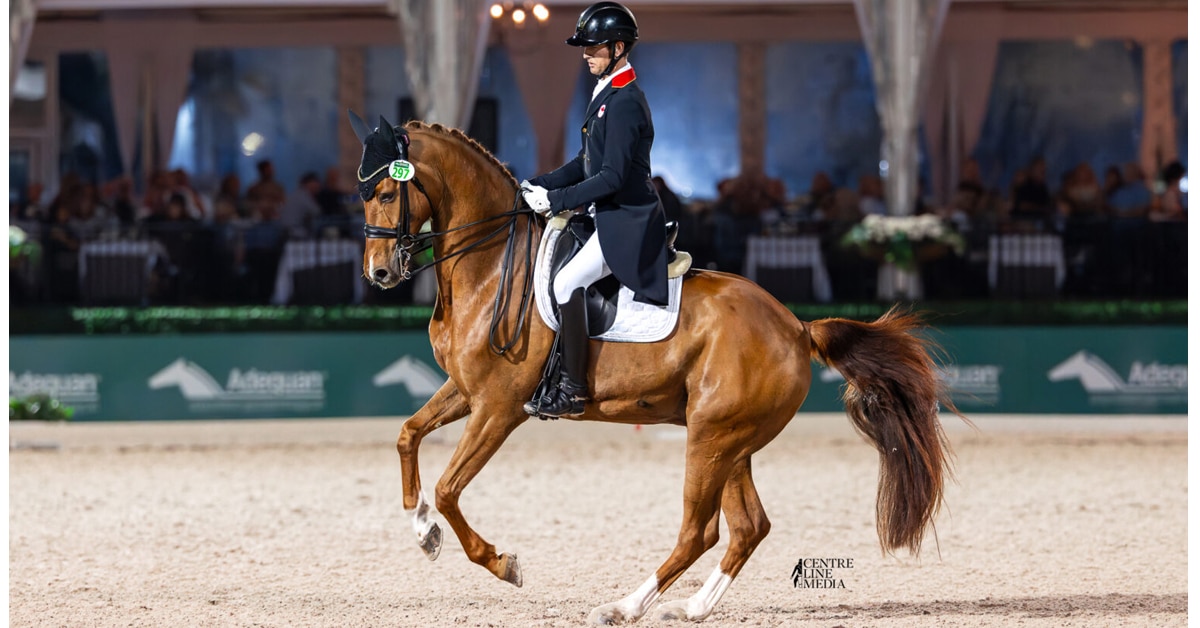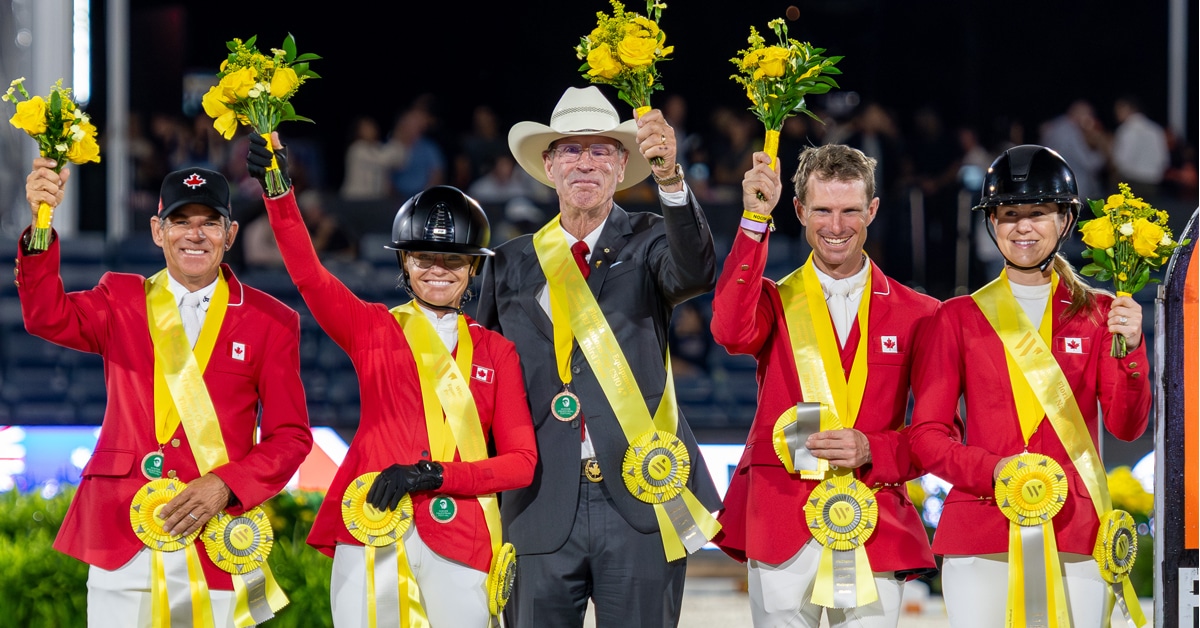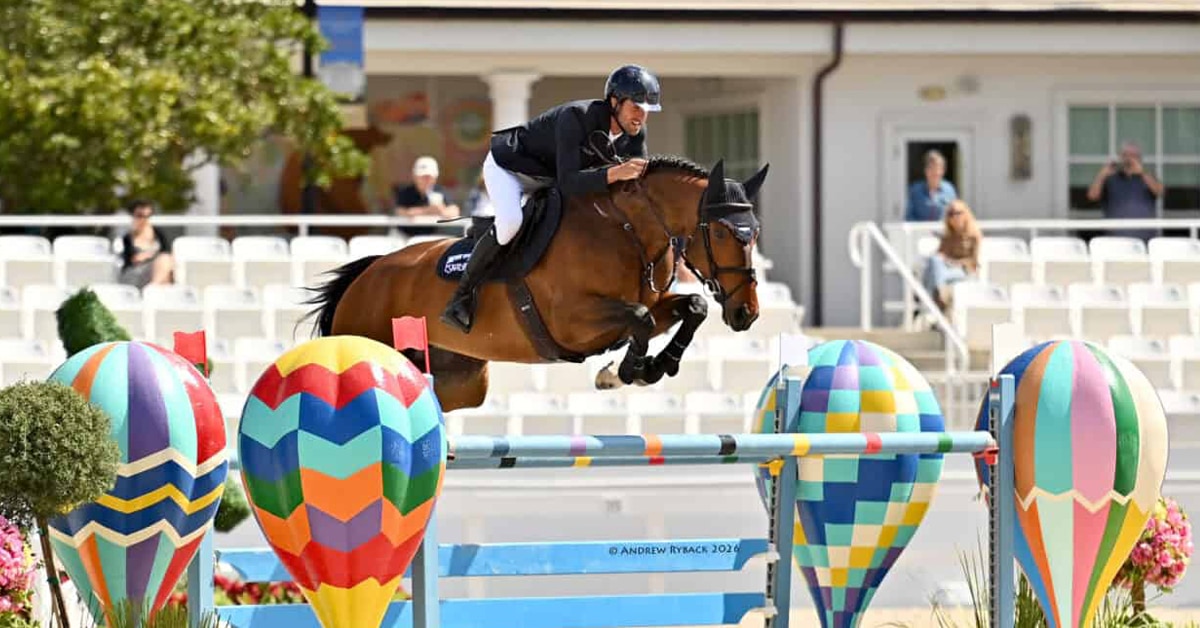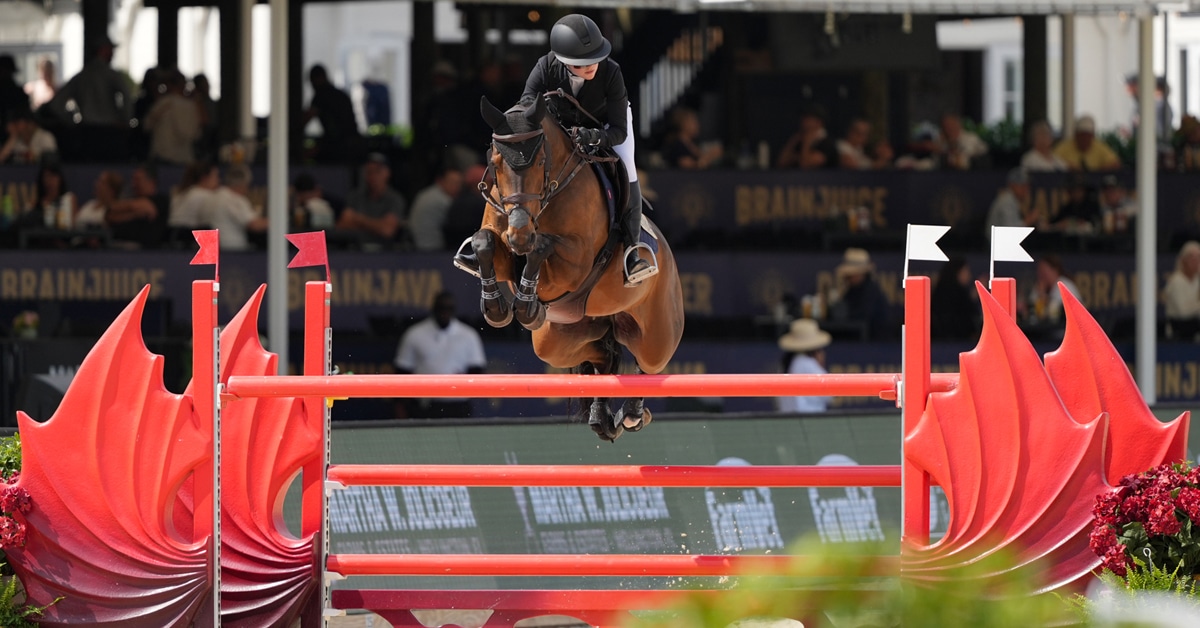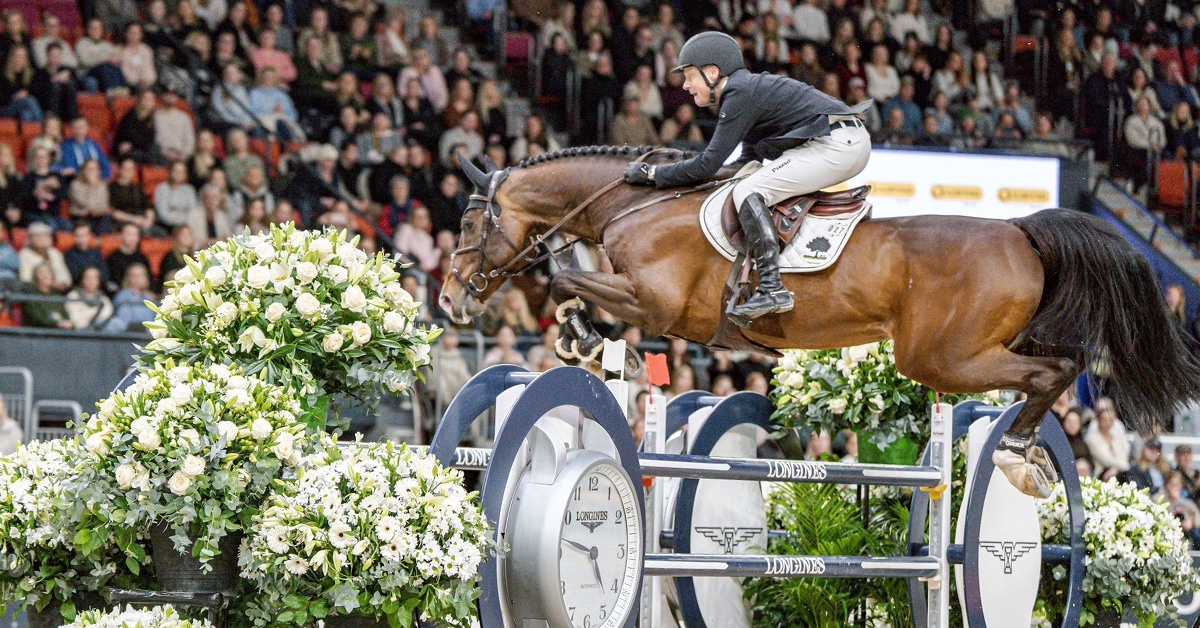Denmark, the country most visibly driving reform in sport horse welfare, starts 2025 with a raft of regulatory change in national competitions – including optional nosebands and partial provision for bitless bridles.
The Danish Ride Forbund (DRF)’s new rules apply from January 1 in competitions categorised from A (the most advanced) down through B, C, D and E. At national dressage events a noseband is now optional at all levels, and a bitless bridle may be used in dressage at the lower levels C, D and E. The double bridle in dressage is already optional.
Spurs must be no longer than 2cm, measured from the heel of the boot to the tip, in both pony dressage and jumping (compared with 4cm in FEI.)
In jumping, the whip may only be used twice in a row, or disqualification will follow; under FEI rules, the whip may be used three times in a row. In Danish levels A, B and C, the competitor is now eliminated after two disobediences instead of three.
Denmark began measuring noseband tightness in 2018, partly informed by the long-time studies of Dr. Mette Uldahl, an oral lesions expert now engaged in similar research for the FEI.
DRF has offered no explanation for its latest decisions, other than saying all rule changes reflect stakeholder suggestions.
The Danes have acted in part out of frustration. Activists feel the FEI is not moving fast enough to maintain equestrian sport’s social licence to operate. In November, a conference staged by the Danish Ministry of Agriculture’s animal ethics council concluded that if sport regulators cannot protect sport horses, the state must step in. The ethics council has now written formally to the Danish government recommending it introduce laws banning, among others, double bridles, any other kind of curb bit, draw-reins and hyperflexion.
FEI rules still apply at FEI shows held within Denmark. There seems small likelihood of the FEI adopting similar measures, especially as the new mandatory measuring of noseband tightness in all FEI disciplines has met considerable pushback from elite riders in dressage and jumping.
At a recent annual assembly of the International Jumping Riders Club, Ludger Beerbaum described noseband measuring as “the beginning of the end.” He felt the wider public did not understand the purpose of well-fitted nosebands. “We are destroying this, only because a vet or horse welfare people are saying that we need this wide-open noseband, so the horses can play with the tongue, and the jaw is going left and right,” he remarked. “We need the well-fitted noseband, and not a loose one where you put the tool in and come up with a new way to give someone a yellow warning card!”
Helgstrand and Kruth free to compete again
Denmark’s reputation has been particularly tarnished in the past 12 months by two high-profile dressage cases involving alleged horse abuse. The new DRF initiatives come just as Andreas Helgstrand and his associate Carina Cassoe Kruth have served their suspensions and are due to resume competing.
Helgstrand was never disciplined by the FEI after Danish TV’s Operation X revealed abusive training practices at his barn in an undercover documentary screened in November 2023. Helgstrand himself did not appear in any incriminating footage, making it difficult to bring a case from the legal perspective. However, he was removed from the Danish high performance squad, announced a culture change at his barn, and did not renew his FEI registration last year. His father, Ulf, stood down as DRF chair.
Much later, Andreas Helgstrand was suspended for three months in connection with a two-year-old video of his then pupil, Carina Kruth, who struck her horse hard twice with the whip during a coaching session. Helgstrand was heard to say (in Danish) the equivalent of “give it a proper one.”
Helgstrand’s suspension ends today (January 3). His top string Jovian has already been returned to him by Patrik Kittel, who competed the horse while Helgstrand was grounded.
Meanwhile, Kruth’s suspension over the same incident ended on November 28, having been revisited twice in a disciplinary fiasco of wider consequence. Last summer, the DRF initially fined Kruth 5,000 Danish krone – $1,000 CAD – citing the “historic” nature of the case. Following public outcry over the apparent leniency, DRF then suspended her for eight months. Kruth appealed and it was reduced to three months, in line with Helgstrand.
Danish Prime Minister Mette Fredericksen publicly commented that equestrianism needed to clean up its act. Other government ministers demanded a meeting with DRF to discuss its handling of the horse abuse allegations. At that time, DRF chief executive Morten Schram Rodtwitt did not respond to HorseSport.com’s request for comment. It later emerged Rodtwitt was on “sick leave” from mid-October, soon after HRH Princess Benedikte of Denmark stepped down as DRF patron after 32 years, citing all the controversies.
Last spring, Dan Boyter succeeded Ulf Helgstrand as DRF chair. Boyter himself stood down last month following a resounding vote of no confidence. Rodtwitt has also now resigned, and a former DRF executive, Jens-Erik Majlund, will stand in temporarily.
New chair Kimi Nielsen wants to move away from existing management cultures and to “involve expertise and evidence, where we honestly and genuinely want transparency and openness, and where having conversations about good horse welfare with both professional groups and interest organizations is a matter of course.”
More News
